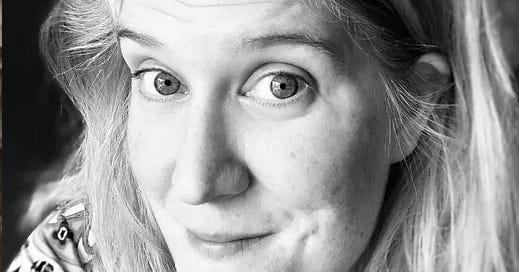Christina Van Dyke (Barnard College), "A Hidden Wisdom: Medieval Contemplatives on Self-Knowledge, Reason, Love, Persons, and Immortality"
Oxford University Press, 2022
Hello! I'm Christina Van Dyke, Term Professor at Barnard College of Columbia University and Emerita Professor of Philosophy at Calvin College; I specialize in medieval philosophy, philosophy of religion, and the philosophy of gender. Most people assume that women didn't participate in philosophical discussions in the Middle Ages, but I argue in my new book (A Hidden Wisdom: Medieval Contemplatives on Self-Knowledge, Reason, Love, Persons, and Immortality, Oxford University Press) that this is in large part because we've been looking in the wrong places. If we look beyond scholastic treatises, we find any number of medieval women engaging and even shaping debates about philosophical issues.
In A Hidden Wisdom, I show how women were deeply involved in a variety of ongoing conversations about everything from what love is supposed to feel like to the relative importance of intellect and will. (Hence the grocery-list subtitle of the book!) I focus on figures in the Rome-based Christian contemplative tradition in particular both because the number of women writing in this tradition in the 13th-15th centuries is well-documented and impressive, and also because their work influences later philosophers in ways that are today almost entirely overlooked. (I started my History of Philosophy II course at Columbia last spring, for instance, with excerpts from Hadewijch, Catherine of Siena, Julian of Norwich, and Teresa of Avila on self-knowledge, and students made all sorts of connections between their views and those of Descartes, Locke, and Kant - it was really fun!)
The book also contains 30-some images of medieval art: Christian contemplative culture in the Middle Ages was highly visual, since many (most) people wouldn't have had access to written texts or the ability to read them, and so we can literally see how philosophical discussions impact representations of the relation between human beings and God, and vice versa. I also include five inter-chapter 'interludes' that provide context for aspects of medieval culture that most readers will be unfamiliar with, like who the beguines were, and why medieval mystics use such erotic imagery in talking about God. The general idea is to show people where some really interesting stuff is happening and to give them the tools to appreciate it.
Finally, the fabulous Sarah Virgi recently interviewed me about the book for IPM Monthly, asking me about how these medieval women fit into their larger communities, and the conversation is published here: https://ipmtoday.com/women-philosophers-and-their-communities/
Here's a link to the book, which comes out in the US on January 27! A Hidden Wisdom






Great post! Love medieval philosophy. Mentor in this was the late great Francis Kovach. I had several chauvinisms that studying MP helped with. 1. Analytic chauvinism Assumed the pinnacle was Frege, Carnap, Quine, Kripke, et al. 2. Temporal chauvinism. Assumed really important philosophy started in the last three centuries. 3. Gender chauvinism. Assumed the quality philosophy was solely the province of males. 4. Cultural chauvinism. Assumed the only good philosophy was a Western development. Didn't know the highly sophisticated medieval philosophy being done in East Asia by thinkers like Dogen, Chinul, Tsongkhapa, Longchenpa, etc. Three cheers for Medieval Philosophy!